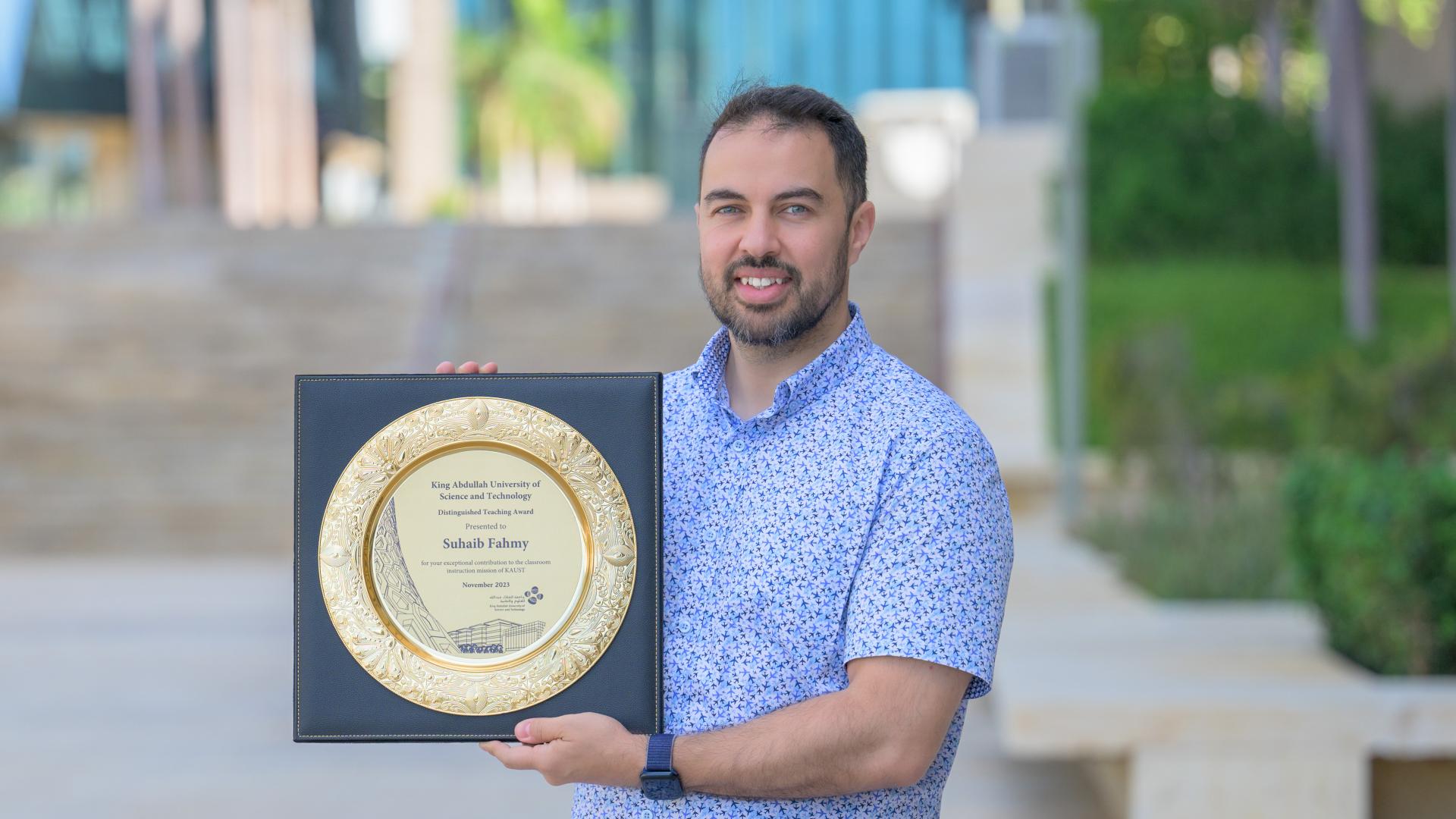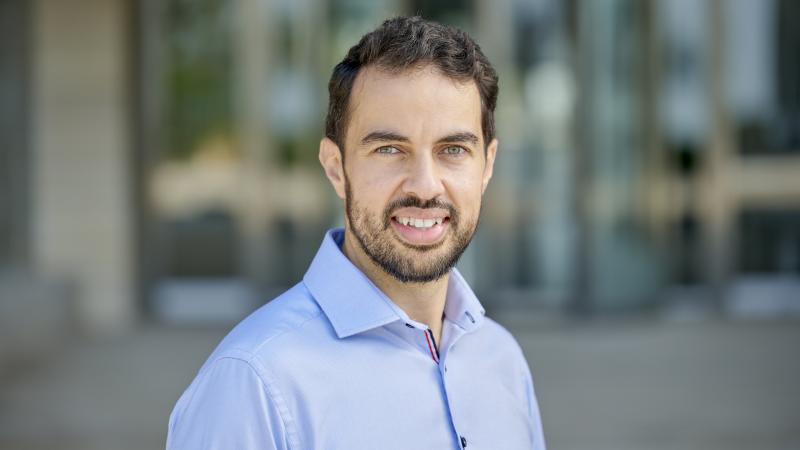By David Murphy
Professor Suhaib Fahmy joined KAUST in late 2020 at the height of the COVID-19 pandemic. It was the prospect of building a team of highly motivated researchers with sufficient resources that convinced him to come to the University. The key to achieving a goal of this kind is collaborative access to world-leading faculty across related fields. As Professor Fahmy soon realized, KAUST was an ideal place to achieve excellence through collaboration.
Upon joining the University, he also quickly discovered that KAUST’s students brought an array of perspectives to their academic environment. As the principal investigator of the KAUST Accelerated Connected Computing Laboratory (ACCL), Fahmy has established a strong bond with his students. It is a bond that led to the bestowment of one of the University’s highest honors: the KAUST Distinguished Teaching Award for 2023.
The associate professor of computer science was recognized for the award due to his exceptional contributions to the classroom instruction mission of KAUST. The award was conferred at the annual KAUST Faculty Recognition Dinner held on Monday, November 6, 2023.
“Being recognized in this way is indeed an honour, and I’m delighted that this process is driven by student feedback and nominations, making the award even more meaningful. Teaching is one of the primary roles of a faculty member and perhaps impacts most individuals directly, so such recognition is certainly appreciated,” he commented.
A constant source of motivation
This May, KAUST celebrated its 5000th day since it opened its doors to its first class. Perhaps the University’s most outstanding achievement is its continued ability to shape and hone students who are pushing the frontiers of science in academics and industry.
Working with students has always been a source of motivation for Fahmy. It remains a clear and highly rewarding goal of his to watch his students develop their understanding of a field, take charge of their research, and then make contributions that are recognized through high-quality publications and prizes.
“Seeing the success of my previous students in industry and academia is further motivation to inspire my team in this direction. I am also delighted when students who initially join my classes out of curiosity are drawn to keep working in the area.”
In order to arouse his students' interest in the subject area, he projects his own motivations. He tries to move them from an extrinsic motivation based on grades and exams to an intrinsic motivation driven by an understanding of the subject area’s interrelationship with other areas.
“I am sure that the best teachers are those who appreciate the learning journey themselves; they really can empathize with the students’ perspective,” he emphasized. “A clear conceptual framework must underpin study in any curriculum area for students to experience the “aha!” moments.
“Some people do work at a surface level and seem to achieve some “success;” however, the true contributors are those who peel back the layers to ask questions and aren’t content with accepting the assumptions made by others around them. It is at these interfaces and intersections, and behind these assumptions, that the opportunities for contribution lie.”
An impactful research agenda
Using accelerated computation and communication, his research develops new methods for improving efficiency, latency, and security in computing systems—improvements he considers to be essential as computing permeates all aspects of our lives.
Fahmy’s ACCL team is currently investigating various approaches to hardware acceleration and how connected computing can enable more efficient, performant and secure systems. The group is interested in overcoming the inherent latency and inefficiency of existing computing abstractions.
“I hope to see my group at KAUST continue to grow and gain a reputation for impactful research in this exciting area. I am confident that we can make contributions that will impact the Kingdom as it accelerates the pace of development. My proudest achievements to date are my former students, and I hope to have many more join me on my journey here at KAUST,” he concluded.

